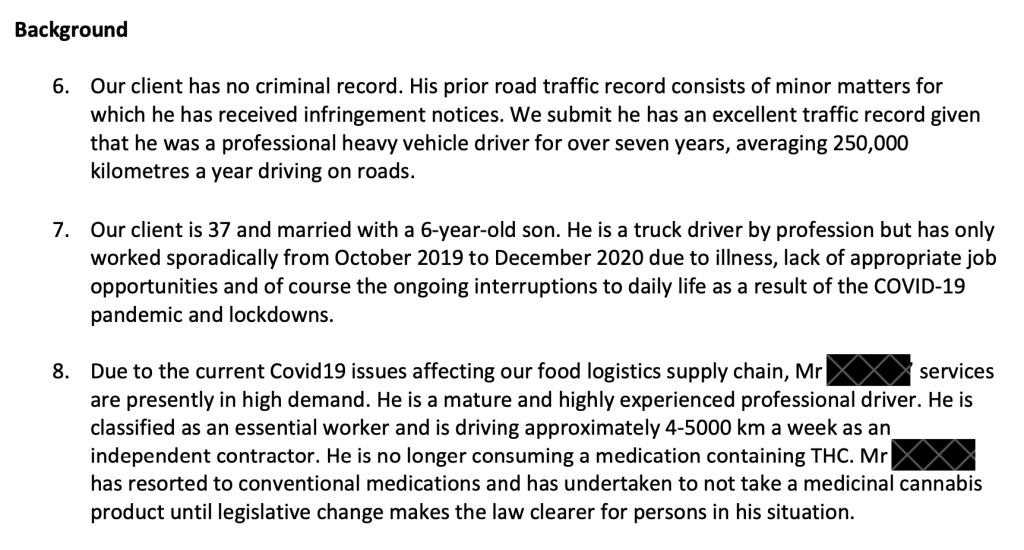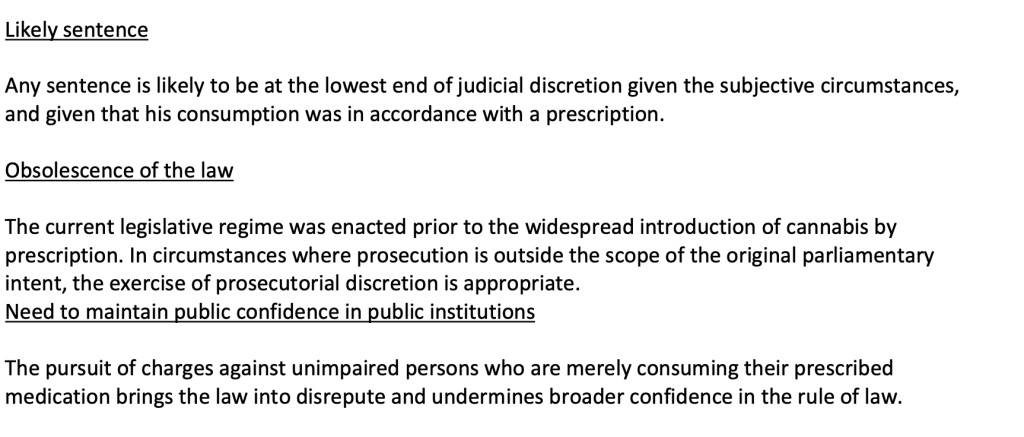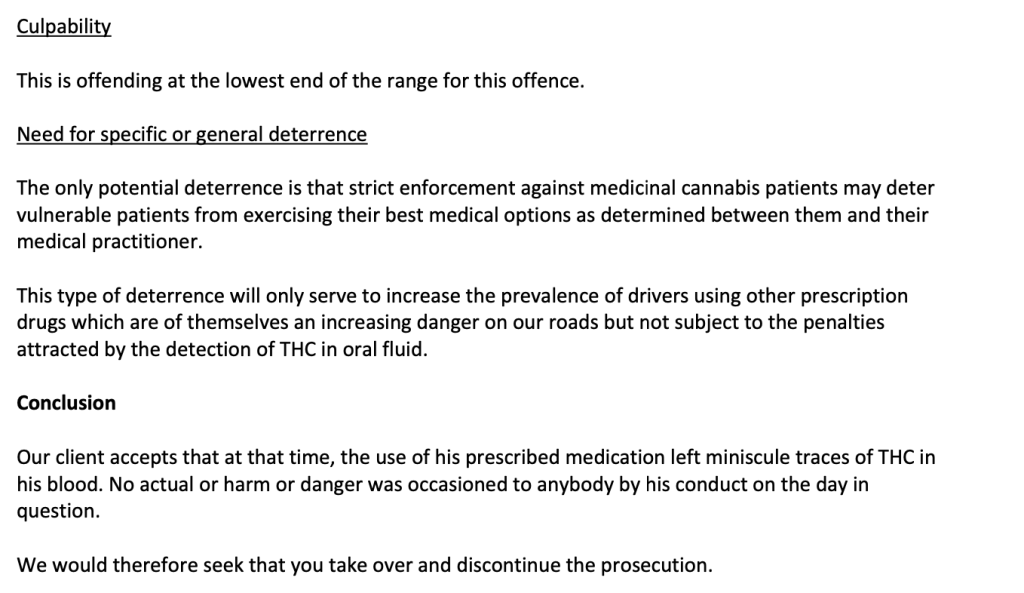Lawyer Mat Henderson shares his reflections on possible ways around the drug driving law impasse and his experience defending a professional driver (and die-hard Storm fan) who was penalised for medicinal cannabis.
“It’s the attainment of justice and fairness that gives lawyers their buzz.”
So said The Hon Michael Kirby during one of the dozen visits to UTS Law School during the 00’s. The truth is, there is little to no buzz for a lawyer doing pro-bono work for medicinal cannabis cases. After five years of this sort of work, I can attest to that. What it really is is a grind of hearing heartbreaking patient stories and organising of doctors’ letters, which all feels more like shoveling sand against the tide than it does practicing law.

The lack of buzz stems from an inability to “change the law” in the time-honoured way by approaching courts, arguing the distinguishing facts of your case, setting a precedent, and changing the law (a gross over-simplification).
It doesn’t matter if “Granny Scroggins” is a cancer patient who last consumed her prescribed THC a month ago but then stopped being able to afford it. If it is detected in a roadside oral fluid drug test, she’s breaking the law. These laws seems to suggest that presence is presence and criminality is criminality. Even if you never thought of yourself as a criminal, as Granny Scroggins never did. If THC is detected in your system, you are.
In every Australian jurisdiction (bar Tasmania), it remains illegal to operate a motor vehicle with any detectable level of THC in your oral fluids.
Don’t even sit in the driver’s seat of stationary car if you had your THC-containing medicine today. It’s a zero tolerance approach to any presence of THC. This law persists, despite the increasing number of international jurisdictions which are adopting a per se approach, i.e picking a measurement of THC-in-blood and only making it a criminal offence to drive if that level is detected.
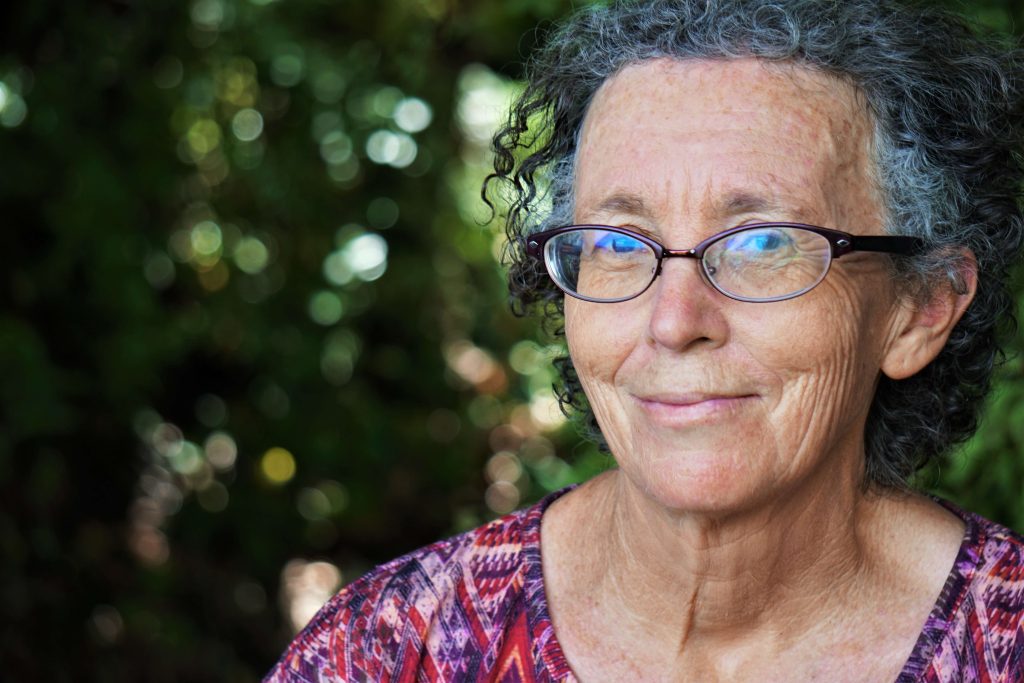
The basis of our road laws are inherently flawed
A zero tolerance approach focused on saliva testing is fraught with accuracy issues. The current police practices take your saliva sample and sends it off to a lab. There, it winds up in a whizz-bang machine that looks for evidence of THC in your fluid, regardless of how long ago it was consumed. THC consumed days or even months ago can show up through this method. Whether it reads a faint positive or false positive, the law doesn’t care. What this machine spits out is essentially the live or die results of your driving priveleges.
Read more: THC in Blood and Saliva Not Indicative of Impairment, Studies Say
Australians don’t want unruly and impaired recreational consumers of THC on our roads.
Nor do we want people impaired by their lawful THC meds to get behind the wheel when they bloody well should not.
These are a given.
Australians also trust each other to be responsible when it comes to taking any prescribed impairing medicine (as directed) and to not operate cars, mix the medicine with booze or use heavy machinery if they feel impaired.
Common sense dictates that most folk apply the ‘next day rule’ to impairing drugs. This should also be a given when it comes to medicinal cannabis but law makers appear to be blocked by law enforcers. This is not how the separation of powers is meant to work.
How Parliament is Working to Change the Law
If you got this far, you may or may not know about the Parliamentary developments in Victoria and NSW.
For those who need to be caught up, the decision was: “More research required.”

Over the last ninety years, police have professed to be experts in determining whether or not a person is affected by cannabis/THC. Now we’re essentially told that such rudimentary policing skills are beyond them and that whiz-bang machines are more reliable.
Righto then. Below is my personal account of what will likely continue to happen whilst the research progresses.
Mat Henderson’s Tricky Tale of Defending a Medicinal Cannabis Patient
Two years ago, I took a call from a friend who works in the locally-licensed medicinal cannabis space.
A doctor had just called them about a patient on a 50:50 product who consumed 0.25 of a ml of oil (approx. 2.5mg CBD and THC) at 8am and then got pinged by a roadside drug test at 4pm. The patient is a professional driver with a bad spinal injury and felt no adverse impairment that day at any time during the day of offending.
“His name is Will, “he’s a Storm fan and he’ll make sure you’re aware of it.”
More about Will later though. First Let me firstly give you a flavour of the factors you need to weigh up when working with a person about their history of prescribed THC, traffic history, and logistics around the day of offending.
Any reasonable person would be able to understand there was no impairment from medication on Will’s part. But that doesn’t matter; what matters is how the law is written.
Read more: Answering Cannabis Law FAQ
The way the laws are currently written, unless you have a reasonable explanation for how the THC got into your saliva passively (and possibly without your knowledge), a court is in no position to do anything other than apply the law and mark your actions as criminal.
Detection of any amount of THC results in the minimum penalty 3-6 months loss of license.
If you’re given a fine and purport to contest it on any grounds other than passive/unknowing ingestion of THC, you’ll find yourself in a legal cul-de-sac without a defence that a court is able to spend any time listening to. Best you don’t go speculating on how reasonable your reasonable explanation is without seeking formal legal advice. This blog post is not that.*
When I do offer legal counsel to clients, I commonly hear the same story:
“I am a lawful medicinal cannabis patient”
“I take my medicine lawfully.”
“I’m not some scallywag kid driving when stoned.”

Sadly, none of these remarks are a good defence as the law remains as it is. Having detectable levels of THC in your saliva is a punishable offense, and patients ought to think twice about blurting out this knowledge after returning a positive roadside THC test.
If you know how the THC got there (and it was from consumption of your prescribed medicine), please don’t expect the police to use that information to apply leniency and wave you on.
However, if you’ve thoroughly educated yourself on the futility of arguing a medicinal defence and understand that if you contest the fine, you’ll inevitably end up pleading guilty, then you may wish to seek leniency in sentencing. If so, keeping your story consistent in any dealings with the police and the courts is always wise.
Always consult your doctor if you return a roadside THC positive.
Ask nicely and your doctor should write a supportive letter to the court outlining what conditions you’re diagnosed with, what medications you’re on and their brief opinion as to the efficacy of those medicines and any overall symptom relief and improvement in your quality of life.**
With such harsh and unjust laws, what could any leniency look like?
Well, perhaps you may not have conviction recorded or face an unsettlingly large fine.
Like I mentioned at the start, there’s no justice buzz for lawyers here. Not when every THC detection matter feels like nailing jelly to the ceiling, fighting a retreat with the British at Dunkirk or fighting against them at Ruapekapeka, massively outgunned but most certainly not out-witted. On most facts, a scrappy draw is the best result you can ask for.
The preservation of a future career working on the Canadian ski fields is a lifeline for some people. A criminal conviction in Australia tips poutine all over plans like that. However, if a person has to revert to previous medications like opioids and benzodiazepines which may well kill them in order to avoid offending in the future, then it’s hard to interpret that as anything other than a loss.
Losing all the time sucks.

Despite knowing this, I still wanted to speak to Will…
This was back during the first lockdowns of the pandemic and there was a strong public interest in ensuring food supply networks remained functional. Lawyers chasing the fairness buzz, like good reporters, are always looking for good facts. Surely such facts warranted a letter being sent to the prosecution to seek withdrawal of charges that Will was facing on public interest grounds.
Either way, after a long chat with Will, it was clear he had a unique factual matrix worth exploring and even if there was no joy to ultimately be had in court, there was the prospect that the case may have communal learnings for all in the drug law reform space.
Coincidentally, it was also around this time that Drive Change was founded, and David Heilpern was roped in to consult pro-bono. Greg Barns SC was instructed to appear and graciously agreed to do so pro-bono as well.
This is where things start getting lawyer-ly
Everything about Will’s circumstances warranted a request for some prosecutorial discretion. Through endless lockdowns, delays, illnesses, and adjournments, this approach was initially taken twice. First with the police prosecutors at the Magistrate’s Court. They stated the prosecution would proceed. Secondly with the top Victorian prosecutor at the Office of Public Prosecution where, in April of this year, they also stated that the prosecution would proceed.
Excerpts from those reps drafted by me and settled with David and Greg below.
On 11 August, Greg appeared for Will at Heidelberg Magistrate’s Court. In the absence of a defence as to how the THC got into his system, Will pleaded guilty.
In being deferential to the presiding judicial officer, we shan’t regurgitate their words verbatim, less to say that the court was moved by Will’s supporting letter from his doctor and his attempts to have a more functional life beyond opioids. There was no fine payable and no conviction recorded but the court was compelled by law to suspend Will from driving for 6 months. Will was given the lowest possible penalty just as Greg wrote submission that Will is “ultimately a victim of the Victorian legislature’s failure to keep abreast of the development of medicinal cannabis as a legitimate form of pain relief.”
Will has had some time to plan around the inevitability of a license suspension but still, it’s hard. He tells me a McDonald’s has opened in walking distance from his new place. He can bang out some hours there to keep some funds coming in.
He shouldn’t have to work at Maccas for 6 months because of being a lawful medicinal cannabis patient who drove whilst unimpaired. Yet with detectable levels of THC in his saliva, that’s what he’s faced with. All medicinal cannabis users ought to be afforded the right to drive provided they aren’t impaired by THC (to Maccas even).
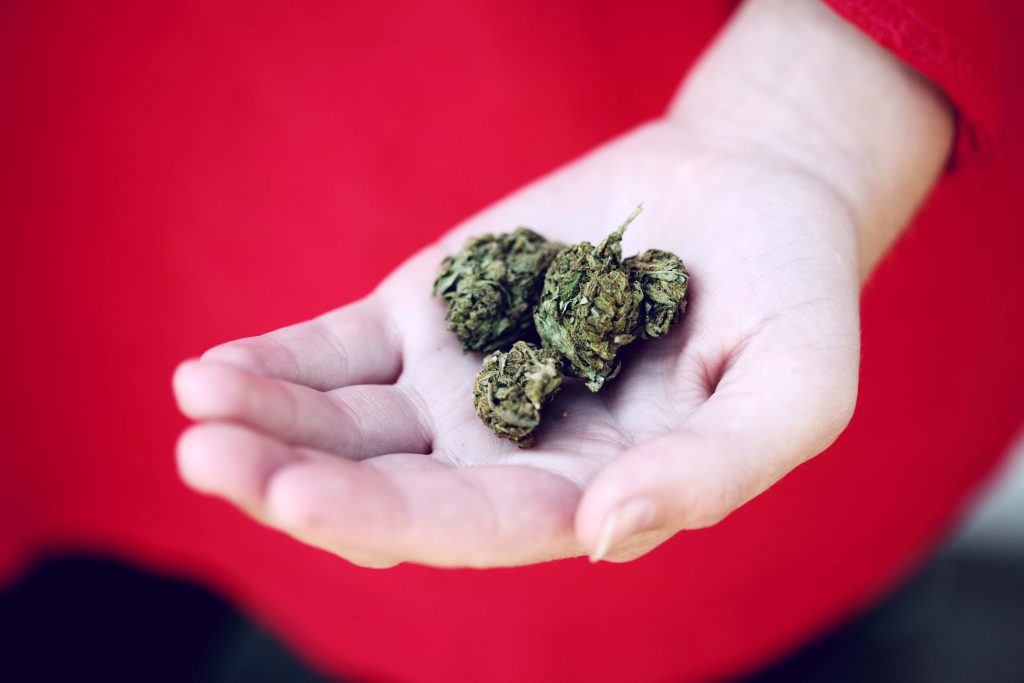
The best approach to testing for THC
Due to the vagaries of THC and human metabolism, it’s not looking mega-likely that sampling your saliva or blood and reverse calculating the timeframe in which you *may have* last consumed THC is going to be possible anytime soon.
Sure, there’s cannabis breathalysers in the R&D pipeline but thus far they are capable of detecting smoked and vaporised cannabis, not orally or sublingually ingested THC.
Suppositories? Forget about it. Even if there was a device on the market that purported to test for ingestion of cannabis via anal suppository, I imagine that both the police unions and civil libertarians would unite to oppose its use.
Basically it seems as if The Man is unwilling to budge on the issue of THC detection until such time as someone in a white coat provides them with the equivalent of “0.05 on the Willie Nelson Dial” (as they see it) and the means to conduct the test within in a roadside mouth-swab oriented environment.
Q&A
The law, in my humble opinion, as it stands in this area, is an ass.
We have a set of laws on our statute books that unfairly target a growing swathe of the population with the unnecessary stain of criminality. This is an unsatisfactory state of affairs. Given the outcomes of the recent Parliamentary reviews referred to above, it is a status quo that will continue for however long it takes for the research to be done, then peer reviewed and published.
Q. How long will that take?
A. Probably five years and as Bowie sang in Five Years, my brain hurts a lot.
I wish this article contained a happier call-to-action beyond sit down, shut up and wait for the scientists to finish whatever it is they do behind their velvet curtain.
Where to from here?
When the callout comes for trial participants, best we spread the word far and wide. How about a temporary statutory defence (for THC detection) being afforded to participants registered in the studies recommended and supported by the Victorian parliamentary review and similar studies (seemingly) endorsed by the NSW review and soon to be debated on the floor of Parliament?
The more people who don’t have to put their regular lives on hold in order to wind back the mysteries and wonder of cannabinoid science, the faster the damn research is going to get done.
The biggest hidden hold up to the research is securing clinical trial participants for a THC and driving study. A study which would prevent them from driving whilst the research is being carried out. If parliamentarians allow absurdities like this to stand then our grandchildren are on track to living in an idiocracy where sugary electrolyte drinks are what plants crave.

Instead of being quiet and patiently waiting for Bunsen and Beaker to turn in their paper, we in NSW and Victoria can ensure our votes go to candidates with some chance of setting up a balance of power in upcoming state elections. The Queensland government are about to announce a parliamentary review into drug driving laws and medicinal cannabis. Maybe that review will involve some genuine consideration of the practicalities involved with implementing an interim regime based on best practices from Norway, New Zealand, Canada and Ireland. Perhaps the per se limit of 3ug/L THC in blood as is used in the Netherlands could be a good starting point. If you consumed THC within the last 15 hours, you’ll likely get pinged.
Any researchers who wish to assail me on the accuracy of that, please provide your own estimates of when the average male and female who are daily consumers of, say 20mg of THC would ordinarily be safe to drive after their last puff on the Mighty Medic. The Dutch have gone with 15 hours, based on what we know of vaporised ingestion of THC, is there any chance of bringing that non-drive time down under 10 hours? 4-6 even?
Internationally, blood draws are common.
The logistics for increased use of blood draws in Australia are many, complex but not insurmountable. Anyone suspected of impaired driving can be sent off for bloods under current laws. It’s just that if we sent every person who returned a THC positive in saliva off for a blood draw – it would cost lots of money that governments don’t wish to spend and involve police time that the police would prefer to invest elsewhere.
Any relief against the current zero tolerance regime will be welcome, even if that is by way of a very broad legal limit of THC in blood that doesn’t yet have a strong correlation to being unsafe to drive, yet serves the purpose of deterring people from consuming THC and driving within timeframes where they may be impaired. Hopefully, researchers can narrow that window down further from 15 hours but until they do, perhaps this is where the compromise lies.
Until such an interim compromise is reached, outcomes for people like Will only serve to undermine the rule of law.
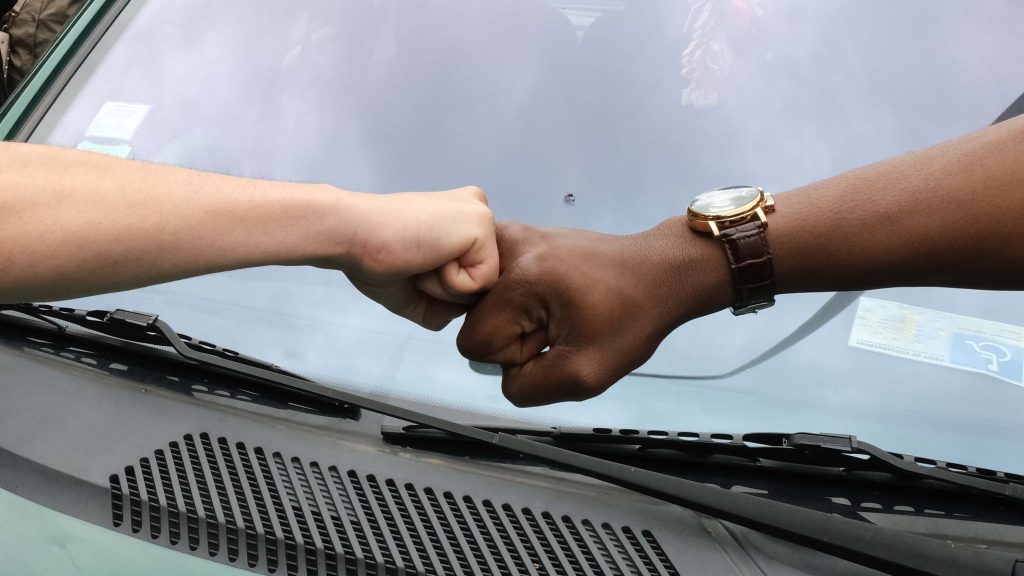
What do those words actually mean?
It’s problematic for faith in our courts if growing numbers of people feel that the rule of law is not there to protect them but is seemingly out to harm them by removing their right to drive a vehicle and participate in as functional a life as possible. The more people who feel that way, the more that the laws are ignored and violated to the point where they’re still “good law” but they are becoming increasingly ineffective as laws-to-be-obeyed because knee-jerk adherence to the rule of law is undermined by the unjustness of it all.
When punishment that is solely punitive (and not at all remedial) is handed down by courts to people that the overwhelming majority of the population don’t deem to have acted like criminals – that’s when you can say the rule of law has been undermined. When judicial officers step down (thank you David) rather than continue to apply such laws, that’s the alert signal that the undermining is happening right now.
Please continue to forward your hard luck medicinal cannabis and driving matters onto me. The facts will come and the law must change.
—
Mat Henderson is the principal lawyer of Reparation Legal and legal lead for Drive Change. Writing on Gadigal Lands and Waters. Always was, always will be. Ka nui te mihi ki a koutou.
*Although ostensibly an article about THC and drug driving law reform, nothing herein is intended to be construed as legal advice. Everyone’s circumstances are unique to them and unique to the idiosyncratic processes by law enforcement in every state/territory. If you need that advice, then by all means contact me.
Don’t print this off and wave it in front of a police officer’s face as if it’s the Magna Carta because it isn’t.
**If your medicinal cannabis prescriber does not wish to provide a letter to the court or if they wish to charge you for the privilege, then also please contact me. If your doctor is seeking guidance on how to write such a letter, have them get in touch with Drive Change.

